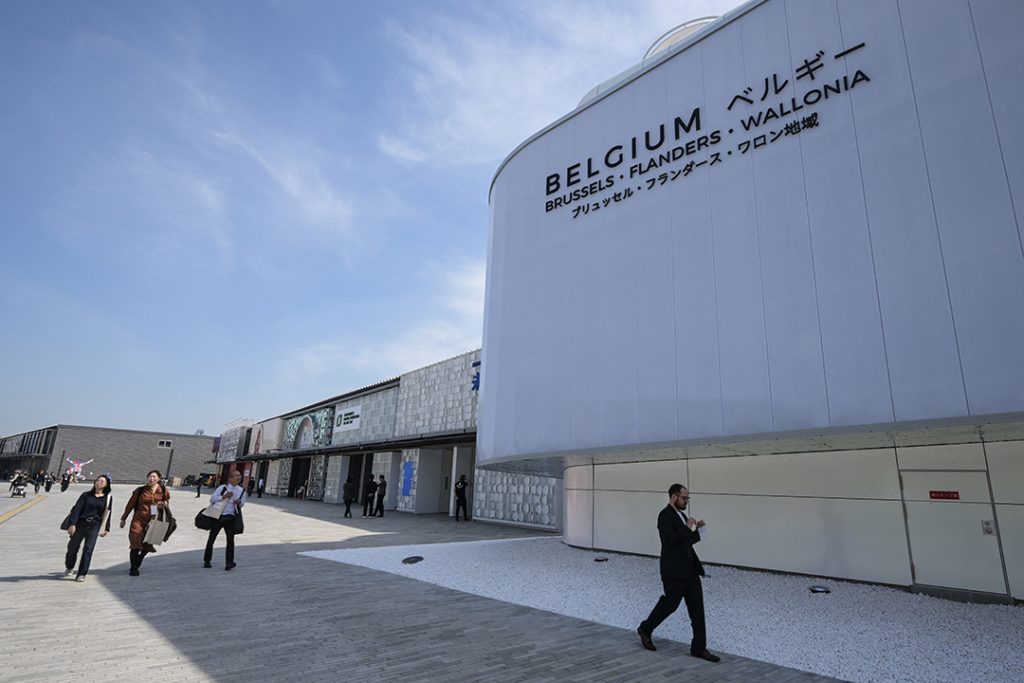Innovation and inclusion: the Brussels-Capital Region at Expo 2025 Osaka
In the Belgian pavilion at Expo 2025 Osaka, the Brussels-Capital Region promotes itself as an innovative metropolis where technology and humanity go hand in hand.
Until 13 October 2025, Expo 2025 Osaka brings together over 160 countries under the theme ‘Designing Future Society for Our Lives’. The main theme has been divided into three sub-themes: ‘Saving Lives’, ‘Empowering Lives’, and ‘Connecting Lives’.
The Belgian pavilion: a shared vision of health and sustainability
Belgium’s participation in Expo 2025 Osaka is coordinated by BelExpo, in collaboration with the federal and regional authorities.
The Belgian pavilion is located in the ‘Saving Lives’ district, devoted to health, and focuses on the theme of human regeneration. It explores the significance of water, as a source of life and symbol of sustainability, in a dazzling scenography symbolising the country’s federated nature, with façade elements representing Belgium’s three regions.
The Brussels-Capital Region, a driving force for innovation and inclusion
The Brussels-Capital Region’s contribution to Expo 2025 Osaka underscores the role of technology in improving health(care) and quality of life, while respecting diversity and sustainability. It demonstrates how the Brussels-Capital Region is at the forefront in integrating Artificial Intelligence (AI) and robotics into healthcare, thanks to its universities, research centres, and thriving technology ecosystem.
The presence of regional bodies, including Brussels International, at Expo 2025 Osaka is a unique opportunity to strengthen Brussels’s international image, establish new partnerships, and confirm its position as a centre for ethical technology.
Partnership with the FARI Institute, one of the highlights of the Belgian pavilion
An initiative of the Université libre de Bruxelles (ULB) and the Vrije Universiteit Brussel (VUB), with the support of the Brussels-Capital Region, the FARI Institute (AI for the Common Good) aims to foster the adoption of AI, data and robotics in a sustainable way, focusing on priority areas such as health and an inclusive community.
As part of Expo 2025 Osaka, FARI is showcasing, among other things, some real-world cases of AI in medical applications such as personalised care and rehabilitation technologies.
 |
Brussels innovations in the spotlight
Visitors to the Belgian pavilion can discover a range of Brussels innovations, including:
– Bricky Bot, a robot designed to perform repetitive tasks with precision and efficiency, reducing the workload of medical staff;
– Axiles Bionics, a VUB spin-off developing a new generation of prosthetics;
– exoskeletons, designed to enhance mobility and facilitate rehabilitation for people with physical disabilities.
These technologies demonstrate the Brussels-Capital Region’s commitment to human-centred innovation, with a focus on collaboration among universities, start-ups, and public institutions.



